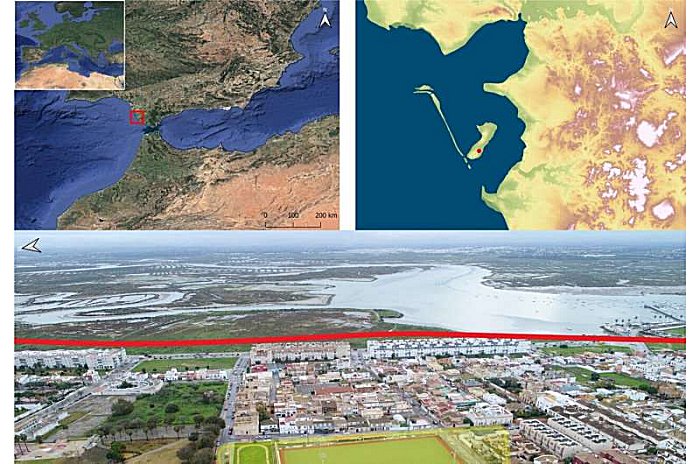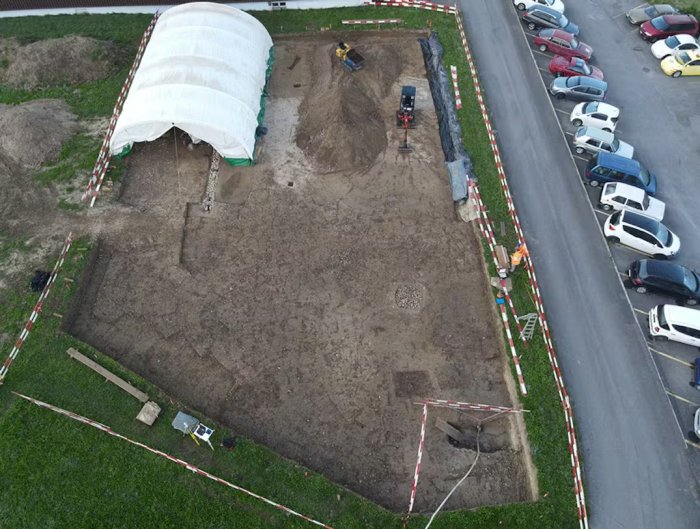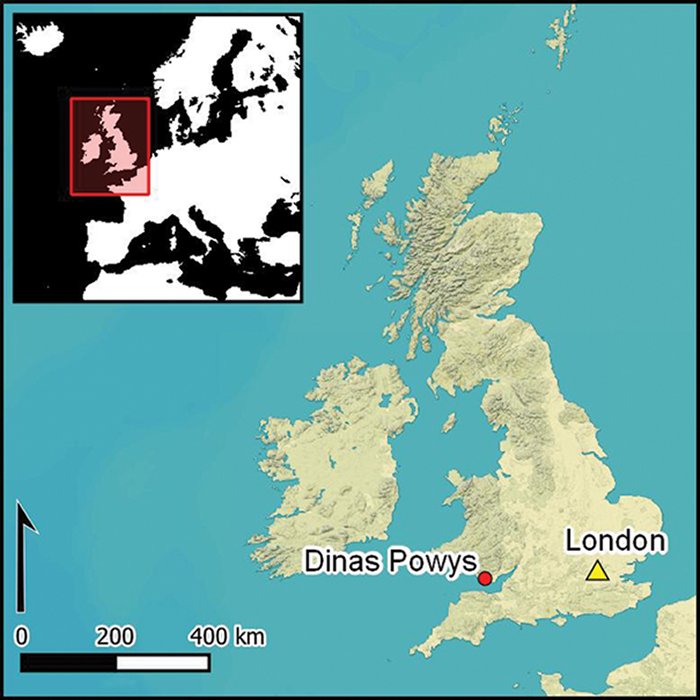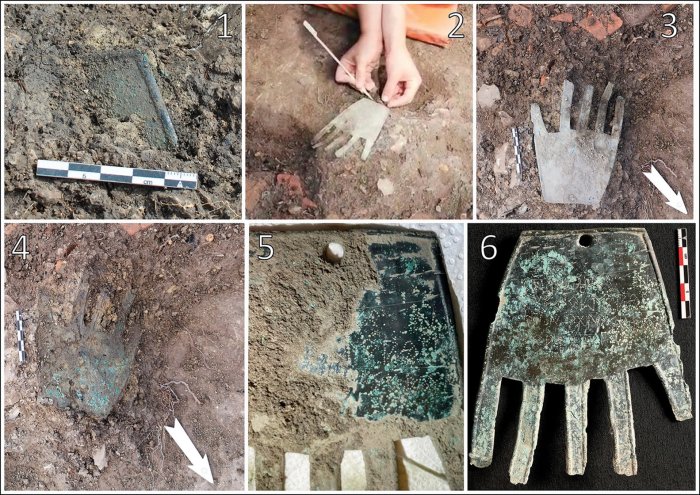Jan Bartek – AncientPages.com – Central features of human evolution may stop our species from resolving global environmental problems like climate change, says a recent study led by the University of Maine.

Credit: Adobe Stock – Zahid
Humans have come to dominate the planet with tools and systems to exploit natural resources that were refined over thousands of years through the process of cultural adaptation to the environment. University of Maine evolutionary biologist Tim Waring wanted to know how this process of cultural adaptation to the environment might influence the goal of solving global environmental problems. What he found was counterintuitive.
The project sought to understand three core questions: how human evolution has operated in the context of environmental resources, how human evolution has contributed to the multiple global environmental crises, and how global environmental limits might change the outcomes of human evolution in the future.
Waring’s team outlined their findings in a new paper published in Philosophical Transactions of the Royal Society B. Other authors of the study include Zach Wood, UMaine alumni, and Eörs Szathmáry, a professor at Eötvös Loránd University in Budapest, Hungary.
Human expansion
The study explored how human societies’ use of the environment changed over our evolutionary history. The research team investigated changes in the ecological niche of human populations, including factors such as the natural resources they used, how intensively they were used, what systems and methods emerged to use those resources and the environmental impacts that resulted from their usage.
This effort revealed a set of common patterns. Over the last 100,000 years, human groups have progressively used more types of resources, with more intensity, at greater scales and with greater environmental impacts. Those groups often then spread to new environments with new resources.
The global human expansion was facilitated by the process of cultural adaptation to the environment. This leads to the accumulation of adaptive cultural traits—social systems and technology to help exploit and control environmental resources such as agricultural practices, fishing methods, irrigation infrastructure, energy technology and social systems for managing each of these.
“Human evolution is mostly driven by cultural change, which is faster than genetic evolution. That greater speed of adaptation has made it possible for humans to colonize all habitable land worldwide,” says Waring, ᴀssociate professor with the UMaine Senator George J. Mitchell Center for Sustainability Solutions and the School of Economics.
Moreover, this process accelerates because of a positive feedback process: as groups get larger, they accumulate adaptive cultural traits more rapidly, which provides more resources and enables faster growth.

Credit: Adobe Stock – Pict rider
“For the last 100,000 years, this has been good news for our species as a whole.” Waring says, “but this expansion has depended on large amounts of available resources and space.”
Today, humans have also run out of space. We have reached the physical limits of the biosphere and laid claim to most of the resources it has to offer. Our expansion also is catching up with us. Our cultural adaptations, particularly the industrial use of fossil fuels, have created dangerous global environmental problems that jeopardize our safety and access to future resources.
Global limits
To see what these findings mean for solving global challenges like climate change, the research team looked at when and how sustainable human systems emerged in the past. Waring and his colleagues found two general patterns. First, sustainable systems tend to grow and spread only after groups have struggled or failed to maintain their resources in the first place.
For example, the U.S. regulated industrial sulfur and nitrogen dioxide emissions in 1990, but only after we had determined that they caused acid rain and acidified many water bodies in the Northeast. This delayed action presents a major problem today as we threaten other global limits. For climate change, humans need to solve the problem before we cause a crash.
Second, researchers also found evidence that strong systems of environmental protection tend to address problems within existing societies, not between them. For example, managing regional water systems requires regional cooperation, regional infrastructure and technology, and these arise through regional cultural evolution. The presence of societies of the right scale is therefore a critical limiting factor.
Tackling the climate crisis effectively will probably require new worldwide regulatory, economic and social systems—ones that generate greater cooperation and authority than existing systems like the Paris Agreement. To establish and operate those systems, humans need a functional social system for the planet, which we don’t have.
“One problem is that we don’t have a coordinated global society which could implement these systems,” says Waring, “We only have sub-global groups, which probably won’t suffice. But you can imagine cooperative treaties to address these shared challenges. So, that’s the easy problem.”
The other problem is much worse, Waring says. In a world filled with sub-global groups, cultural evolution among these groups will tend to solve the wrong problems, benefiting the interests of nations and corporations and delaying action on shared priorities. Cultural evolution among groups would tend to exacerbate resource compeтιтion and could lead to direct conflict between groups and even global human dieback.
“This means global challenges like climate change are much harder to solve than previously considered,” says Waring. “It’s not just that they are the hardest thing our species has ever done. They absolutely are. The bigger problem is that central features in human evolution are likely working against our ability to solve them. To solve global collective challenges we have to swim upstream.”
Looking forward
Waring and his colleagues think that their analysis can help navigate the future of human evolution on a limited Earth. Their paper is the first to propose that human evolution may oppose the emergence of collective global problems and further research is needed to develop and test this theory.
Waring’s team proposes several applied research efforts to better understand the drivers of cultural evolution and search for ways to reduce global environmental compeтιтion, given how human evolution works. For example, research is needed to document the patterns and strength of human cultural evolution in the past and present. Studies could focus on the past processes that lead to the human domination of the biosphere, and on the ways cultural adaptation to the environment is occurring today.
But if the general outline proves to be correct, and human evolution tends to oppose collective solutions to global environmental problems, as the authors suggest, then some very pressing questions need to be answered. This includes whether we can use this knowledge to improve the global response to climate change.
“There is hope, of course, that humans may solve climate change. We have built cooperative governance before, although never like this: in a rush at a global scale,” Waring says.
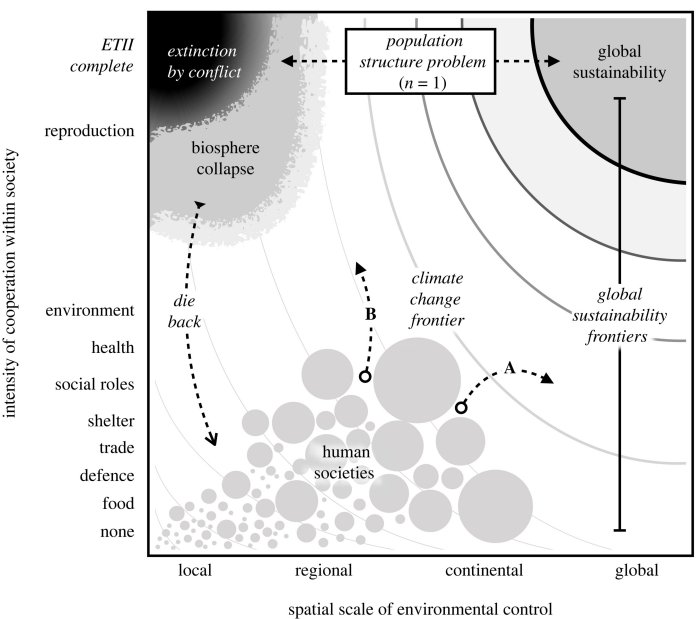
Dimensions of environmental management create an attractor landscape for long-term human evolution. Environmental sustainability challenges (curved frontiers) require a minimum level of cooperation in a society of a certain minimum spatial size. Alternative potential paths move humanity toward different long-term evolutionary outcomes. In path B, compeтιтion between societies over common environmental resources creates cultural selection between groups for increasingly direct compeтιтion and conflict. Path A, growing cooperation between societies facilitates the emergence of global cultural traits to preserve shared environmental benefits. Credit: Philosophical Transactions of the Royal Society B: Biological Sciences (2023). DOI: 10.1098/rstb.2022.0259
The growth of international environmental policy provides some hope. Successful examples include the Montreal Protocol to limit ozone-depleting gases and the global moratorium on commercial whaling.
New efforts should include fostering more intentional, peaceful and ethical systems of mutual self-limitation, particularly through market regulations and enforceable treaties, that bind human groups across the planet together ever more тιԍнтly into a functional unit.
But that model may not work for climate change.
“Our paper explains why and how building cooperative governance at the global scale is different, and helps researchers and policymakers be more clear-headed about how to work toward global solutions,” says Waring.
This new research could lead to a novel policy mechanism to address the climate crisis: Modifying the process of adaptive change among corporations and nations may be a powerful way to address global environmental risks.
As for whether humans can continue to survive on a limited planet, Waring says, “We don’t have any solutions for this idea of a long-term evolutionary trap, as we barely understand the problem. If our conclusions are even close to being correct, we need to study this much more carefully.”
The study was published in the journal Philosophical Transactions of the Royal Society B: Biological Sciences
Written by Jan Bartek – AncientPages.com Staff Writer
